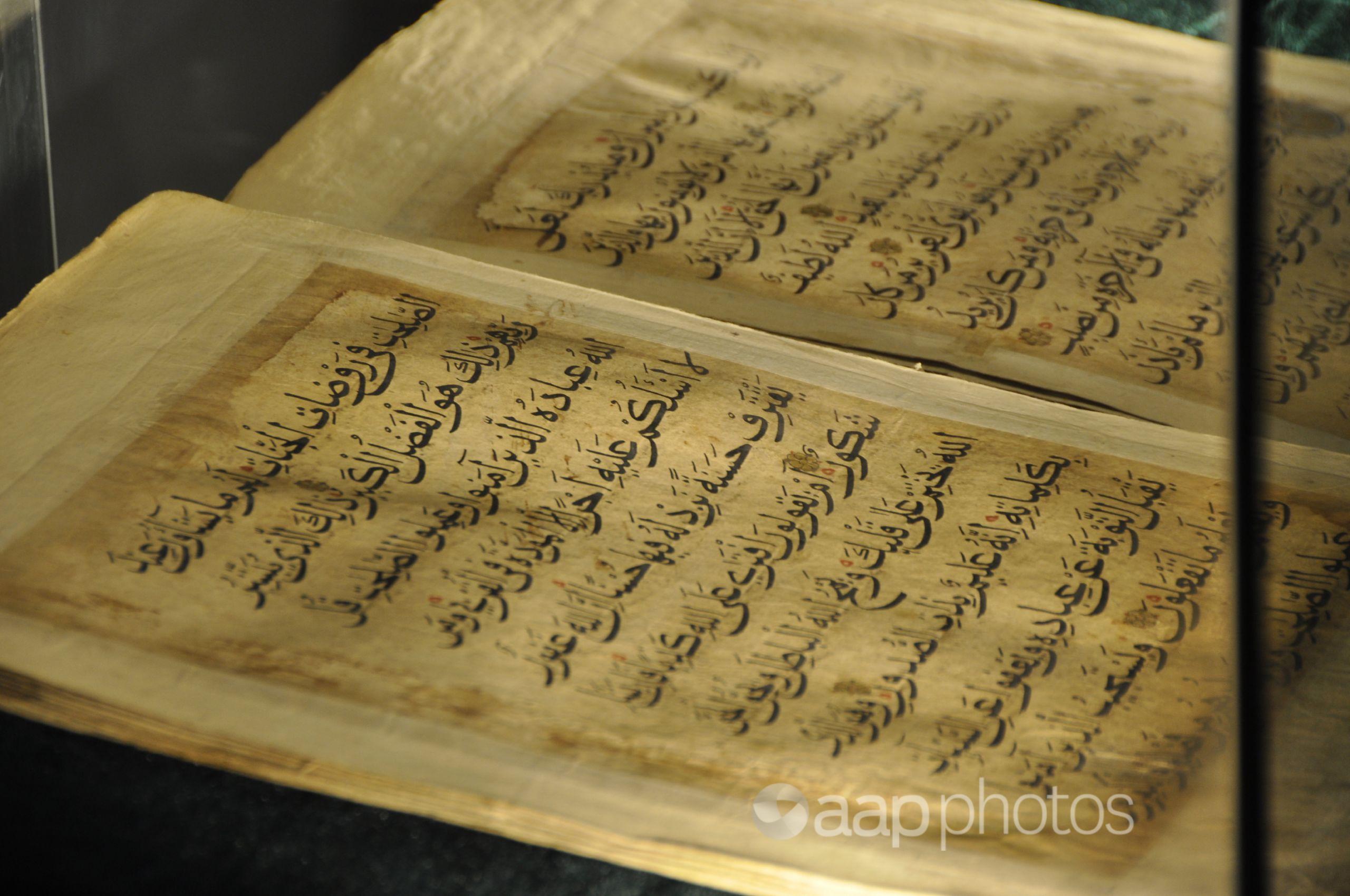The Statement
A meme includes a purported quote from “Abdullah Zuber” in which he advocates for non-Muslims to be killed, adding that the Koran did not allow for their survival.
The meme, shared to an Australia-based anti-Islamic Facebook page on October 27, features an image of a bearded man wearing a white top and a white skullcap.
A quote, attributed to a person named Abdullah Zuber, appears next to the man’s picture and reads, “Jihad will continue until all the Hindus, Christians, Buddhists, Atheists are killed. Your secularism & tolerance can not change our ideology. Quran does NOT permit the survival of Non-Muslims”.
The caption running along the top and bottom of the image reads, “This is Islam. Islamophobic yet?”
At the time of writing, the post had more than 740 shares and attracted more than 980 reactions and 390 comments.

The Analysis
The man whose photo was used in the post – real name Abdullah Juber – was reportedly acquitted on terror charges in India, and has no connection to the purported quote, according to the news website that published the original image.
The image of the man featured in the post was used in a 2014 post on TwoCircles.net, a US-based site providing news for the Indian Muslim community.
The article was about three men, one of whom was named Abdullah Juber, who it said were left in jail in India for eight years on terror-related charges before they were eventually acquitted.
A similar meme to that in the October 27 post featuring an image of Mr Juber – whose face was cropped from a photo included in the TwoCircles article – and a quote in Hindi was circulated online in 2014.
An English version of the meme that included the Jihad quote was shared in 2017, with the source named as “Abdullah Zuber”.
TwoCircles responded to the memes in 2017, when it published an article saying its “exclusively captured” photo of Mr Juber had been photoshopped and circulated online with a fake quote. It included several versions of the meme featuring Hindi text.
The site included the original image of Mr Juber along with data it said showed the image was captured in 2014 and digitally altered to fit the meme format.
The site quoted Mr Juber as saying: “Even after I am innocent in the eyes of judiciary and constitution, I think mob is not going to spare me. But I have to make it clear that I have not said anything like this ever in my life, even I cannot think if I would say such.”
The post resurfaced in 2019 following the election of two Muslims to the US Congress the previous year. Included below the quote and photograph was the text: “Keep this in mind as new members of Congress who are Muslim are sworn into office on this book of death and inequality.”
It was again shared following the Christchurch terror attack in March 2019, during which an Australian gunman killed 50 people at two mosques. A caption claimed Abdullah Zuber said the quote in response to BBC questions, however the UK broadcaster told AFP it did not interview anyone by that name following the shootings in New Zealand.
An Indian website earlier said it had “stumbled upon a factory of fake quotes” being circulated in the names of actors, authors, activists and politicians to polarise people along religious lines.
Its list of false quotes included the meme featuring Mr Juber’s image and a similar statement to that featured in the English-language versions,
Associate professor Mehmet Ozalp, a theologian and founding director of the Centre for Islamic Studies and Civilisation at Charles Sturt University, explained to AAP FactCheck in an email the “Qur’an talks about warfare and fighting in just wars as a necessary evil and sets legal and ethical guidelines around it”.
In a book chapter, Dr Ozalp wrote that after the Prophet Mohammad migrated to Medina in Saudi Arabia, he “established a pluralistic and multifaith society” and took “active steps to sign treaties with all neighbouring tribes”.
“Military wars that the Prophet Muhammad or Muslims had to engage in were either purely defensive or they were pre-emptive strikes against the other party who were preparing to attack Muslims,” he wrote.
Dr Ozalp said a verse from the Koran, which critics quoted to argue that Islam is inherently violent, is often taken out of context as it leaves out the verse’s ending.
The verse starts, “When the sacred months have passed, slay the idolaters wherever you find them and take them and confine them and lie in wait for them at every place of ambush…”
But continues, “…but if they repent and perform prescribed prayers and give charitable alms then let them go their way, for God is Oft-Forgiving and Most Merciful”.
In this case, “idolaters” refers to individuals who carry out acts of terrorism against a peaceful society and a popular and legitimate government, Dr Ozalp wrote.

The Verdict
There is no evidence that Abdullah Juber, whose image features in the meme, said the quotes attributed to him.
The site that first published his photograph quoted him as saying he never made the comments. Other false claims have circulated stating that the comments came from a more-recent BBC interview, which the broadcaster has denied.
False – Content that has no basis in fact.
* AAP FactCheck is an accredited member of the International Fact-Checking Network. If you would like to support our independent, fact-based journalism, you can make a contribution to AAP here.
All information, text and images included on the AAP Websites is for personal use only and may not be re-written, copied, re-sold or re-distributed, framed, linked, shared onto social media or otherwise used whether for compensation of any kind or not, unless you have the prior written permission of AAP. For more information, please refer to our standard terms and conditions.

















